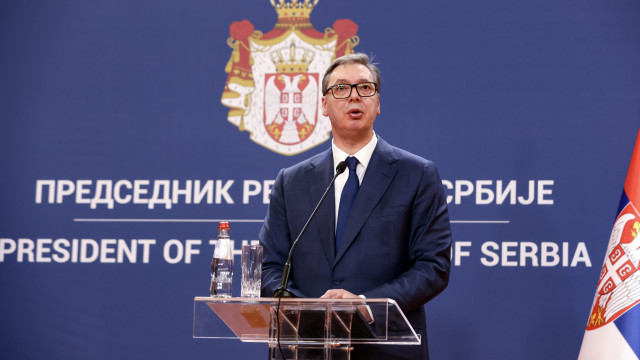Serbia has made "limited progress" in the area of media freedom, according to the European Commission's annual report on EU enlargement, to which "Reporters Without Borders" (RSF) contributed and which was published on November 8, Pavol Szalai, head of the EU-Balkans desk for RSF writes in his article on the oprganization's website.
This is the result of the Electronic Media Regulatory Authority's (REM) lack of independence, the frequent and virulent verbal attacks against journalists by the authorities, the opaqueness surrounding media ownership, and the widespread dissemination of Russian disinformation by numerous media outlets.
The advent of a new political administration in Serbia in October 2022 engendered renewed optimism. The conservative-dominated Serbian parliament approved a law on electronic media and a law on public information and media the following year. In consultation with the media industry, these new laws codify the Press Council's responsibilities and increase the transparency and accessibility of the public co-funding process.
The new laws, however, have been met with severe criticism, particularly because they permit the State to acquire media entities through Telekom Srbija, the state-owned telecommunications company of Serbia, and they have not significantly altered the operations or composition of the REM.
"We applaud the Serbian government's enactment of these two media statutes, which truly implementable measures to safeguard press freedom. Nevertheless, these reforms fail to meet the prevailing challenges. Concerns have been raised regarding the potential resurgence of state control over the media and the REM's continued prominence as a platform for Russian propaganda, given the absence of a substantive reform initiative and the possibility of renewed pressure from the Serbian authorities. Serbia ought to exhibit greater ambition in its reform agenda as a candidate for membership in the European Union. In light of the recommendations outlined in the report of the European Commission, we urge the government to reassess these statutes.
In accordance with the recommendations of the European Commission, RSF urges the Serbian government to:
- Adopt countermeasures against the propagation of Russian disinformation.
The European Commission urges Serbia to "immediately counter anti-EU narratives propagated by numerous media outlets and foreign information manipulation and interference, particularly in the context of Russia's aggressive war against Ukraine," in order to combat the dissemination of Russian propaganda.
- Ensure that the media regulatory authority maintains its independence.
The REM's contribution to the dissemination of misinformation was highlighted by the European Commission, which stated that the organization "fails to consistently demonstrate its independence and to fully exercise its mandate to safeguard media pluralism and professional standards." In June of last year, RSF demanded an end to noxious media regulation in Serbia and a reorganization of the REM to make it more effective, impartial, and transparent.
- Safeguard journalists from any type of violence or intimidation.
As previously documented by RSF, the European Commission is troubled by "violence, threats, intimidation, and hate speech directed at journalists" as well as "the rise in strategic lawsuits against public participation (SLAPP), particularly those initiated by local and national authorities, which could potentially incite self-censorship and a deterrent effect." In order to tackle this issue, the Commission suggests the following: "ensure that high-ranking officials abstain from labeling or verbally abusing journalists; and promptly proceed to investigate or prosecute instances of physical and verbal violence, threats, and threats against journalists;"
It is noteworthy that specific modifications to the two statutes, including the one pertaining to state ownership of the media, were abruptly suggested by the government subsequent to consultations and ratified late into the evening. In Serbian, "zakonska podakta" (by-laws) must be published. Thus, certain laws could still be strengthened by the government, or even improved.
According to the RSF's 2023 World Press Freedom Index (BGNES), Serbia is positioned 91st out of 180 countries. /BGNES



.jpeg)



